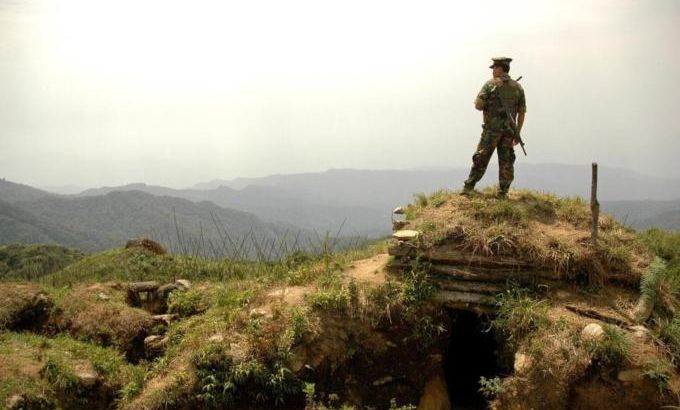
Kachin: Can there be lasting peace?
As Kachin rebels and Myanmar’s government agree to hold more talks, we discuss attempts to calm the escalating tensions.
Ethnic Kachin rebels have reached agreement with Myanmar’s government to ease tensions that have reignited one of the country’s bloodiest conflicts.
Kachin rebels have been seeking greater autonomy from Myanmar’s government for more than half a century.
Simmering tensions have reignited with devastating consequences; an unprecedented escalation in fighting shattered a 17-year truce.
|
“I think both parties in Myanmar have indicated a willingness to bring this fighting to a stop and also make an arrangement going forward for lasting stability ….. Maintaining peace and stability in Myanmar is crucially important to Myanmar at this stage because Myanmar needs to dedicate itself to opening to the outside world and economic and political reform. If there is instability in Myanmar it will really undercut any effort for major progress.“ – Victor Gao, China-Myanmar Friendship Association |
Myanmar’s military unleashed fighter jets and helicopter gunships on Kachin rebel positions.
The heavy fighting is raising doubts about President Thein Sein’s ability to control the military, at a time when the country is striding out along the road to democratic reform.
The two sides have now agreed to more peace talks after a seven hour meeting in southern China.
China is keen to see an end to fighting along its border, and avoid an influx of refugees. It also has major business interests in Myanmar.
Kachin leaders have been pressing for an autonomous state since what was then Burma gained independence in 1948.
But it was not until 1961 that the Kachin Independence Army was formed, pledging to get a free Kachin republic. And so the fighting began.
A ceasefire was eventually agreed to in 1994, which held for some 17 years. That came to an abrupt halt in June 2011.
The government announced a unilateral ceasefire in January. But it broke down almost immediately, with the army capturing key outposts as it edged closer to Kachin rebel headquarters.
The Kachin are the last of Myanmar’s ethnic groups still trying to forge some sort of deal with the government. Others have had varied success.
|
“The problem with these talks is it is only talks about talks. We haven’t seen concrete promises and actions taken by the government on the ground, that they will stop the fighting. What the concern of the Kachin people [is] is that there will be more fighting, more military attacks, more human rights violations on the ground, while on paper the government has been talking about a ceasefire.“ – Zoya Phan, Burma Campaign UK |
The Karen National Union reached a ceasefire agreement a year ago. But the group says lasting peace can only be achieved if the government negotiates a political settlement with them.
A fragile truce was also reached with the Shan State Army, one of the strongest ethnic resistance groups. But even in recent days they have clashed with the government.
And the Chin National Front – dedicated to the self-determination of the Chin people and to restoring democracy – also signed a peace deal last year, ending almost 20 years of hostilities.
China has more at stake than just resolving the Kachin issue. It is also Myanmar’s major trading partner.
Bilateral trade between the two countries has grown to $3.6bn. China also has interests in the multi-billion dollar Myitsone hydropower station. Much of the power generated will be exported to China.
Chinese firms are involved in the construction of oil and gas pipelines. And China contributes significant economic aid and investment for the construction of dams, bridges, roads, ports and industrial projects.
To discuss one of Myanmar’s bloodiest ethnic conflicts and China’s role in it, Inside Story with presenter Laura Kyle is joined by guests: Phil Robertson, the deputy director for Asia, Human Rights Watch; Zoya Phan, a campaign manager for Burma Campaign UK, who is a political activist and Myanmar refugee; and Victor Gao, a Chinese international relations expert, director of the China National Association of International Studies and a member of the China-Myanmar Friendship Association.